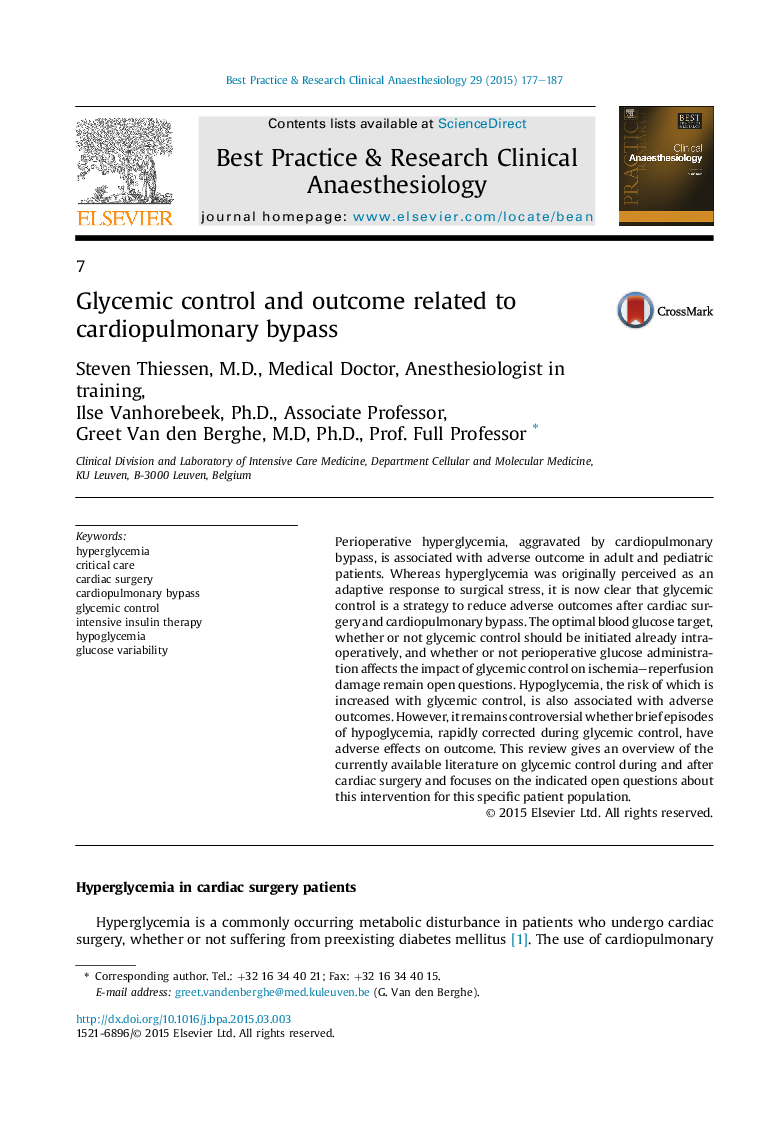| Article ID | Journal | Published Year | Pages | File Type |
|---|---|---|---|---|
| 2748373 | Best Practice & Research Clinical Anaesthesiology | 2015 | 11 Pages |
Perioperative hyperglycemia, aggravated by cardiopulmonary bypass, is associated with adverse outcome in adult and pediatric patients. Whereas hyperglycemia was originally perceived as an adaptive response to surgical stress, it is now clear that glycemic control is a strategy to reduce adverse outcomes after cardiac surgery and cardiopulmonary bypass. The optimal blood glucose target, whether or not glycemic control should be initiated already intraoperatively, and whether or not perioperative glucose administration affects the impact of glycemic control on ischemia–reperfusion damage remain open questions. Hypoglycemia, the risk of which is increased with glycemic control, is also associated with adverse outcomes. However, it remains controversial whether brief episodes of hypoglycemia, rapidly corrected during glycemic control, have adverse effects on outcome. This review gives an overview of the currently available literature on glycemic control during and after cardiac surgery and focuses on the indicated open questions about this intervention for this specific patient population.
